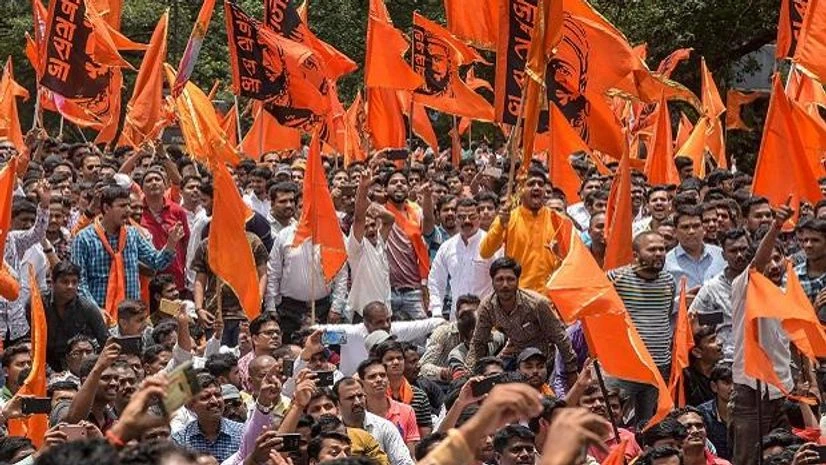Nearly 37.28 per cent Marathas in Maharashtra are living below poverty line (BPL) and 93 per cent families from the community have annual income less than Rs 100,000, according to the summary of findings of the State Backward Class Commission (SBCC).
The state Assembly Thursday unanimously passed a bill proposing 16 per cent reservation for Marathas under 'socially and educationally backward' category.
The summary of the SBCC, which studied the social, educational and financial status of Marathas, was tabled in the state Assembly by the government.
It said the Maratha community constitutes 30 per cent of the state's total population and that 76.86 per cent of its families were dependent on agriculture and farm labour.
The community had six per cent representation in government and semi-government services and the representation was primarily higher in the D-class of government service, it said.
The percentage of the community which migrated to cities for work had more people serving as 'Mathadi' workers (head loaders) and domestic workers, the summary said.
More From This Section
The commission conducted public hearings at 21 places while analysing the social, educational and financial status of Marathas in the state.
It received a total of 1,93,651 personal memorandums, 814 from various organisations, while 784 gram panchayats also collectively submitted 282 resolutions.
Besides, elected representatives submitted 196 memorandums which supported reservation to Marathas under the Other Backward Class (OBC) category.
However, 1,523 personal memorandums, 86 submitted by various organisations, 78 political representatives and 37 gram panchayats said Marathas should get separate reservation without disturbing the existing quota.
Also, there were 84 representations opposing inclusion of Marathas under the OBC category, the findings said.
The SBCC findings said there were 6.92 per cent Marathas in the Indian Administrative Service (IAS), out of which direct recruitment was of only 0.27 per cent.
The representation of Marathas in the Indian Police Service (IPS) was 15.92 per cent while in Indian Forest service, it was 7.87 per cent.
The findings also said that as compared to the community's population, only 4.30 per cent posts were taken by highly qualified Maratha members.
"The poor representation of the community in higher, technical and professional courses shows social inefficiency, inept financial situation and educational weakness," the SBCC mentioned in its findings.
It said that from 2013 to 2018, 13,368 farmers committed suicide, of whom 23.56 per cent (2,152) were from the Maratha community.
The main reasons of suicide were indebtedness and crop failure, it added.

)
